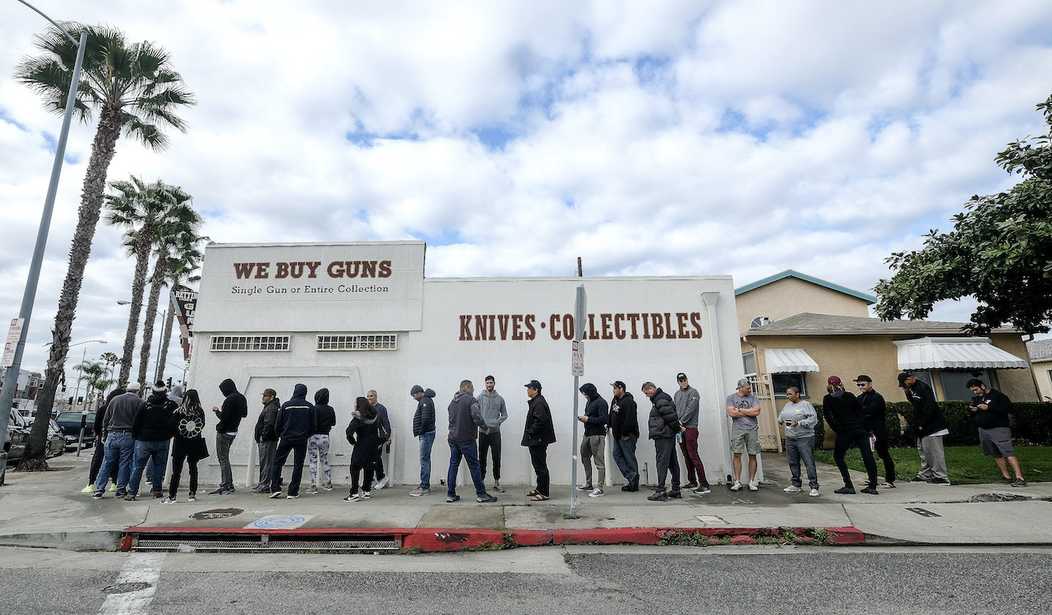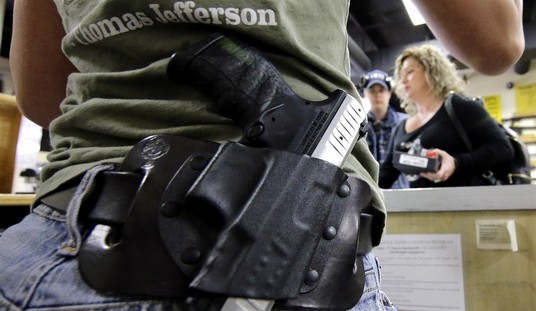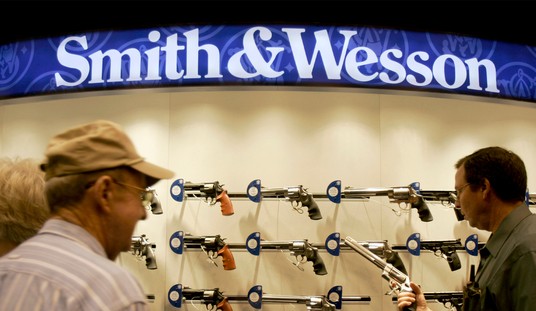We’ll have a much better idea here in about a week when the FBI releases its NICS figures for March, but there’s already some anecdotal evidence pointing towards the idea that Russia’s invasion of Ukraine has more Americans ready to embrace their own right to keep and bear arms.
From Arizona:
Bryon Vaughn, the general manager at Mo Money Pawn Shop says there’s no single reason why the numbers have jumped.
Though he’s certain sales won’t slow down anytime soon.
“You know every time we get instability, we get busier,” he told ABC15.
He says the pandemic led to a spike in sales and now, “It’s tax time of course. People have a little extra money in their pockets,” said Vaughn.
He also says the war in Ukraine has more people looking to buy guns.
“Anytime you have any time of uncertainty in the world, you know… it’s a comfort buy for people,” he added.
He says it’s uncertainty that has caused backups in the supply chain.
“The 7.62 ammo is increasingly hard to find, so yes, it’s going quicker. 7.62×39,” said Vaughn.
To Florida:
Channel 3 checked with several gun shops in Escambia County and they said a local movement to ship firearms to Ukraine isn’t in the works. But they did say the Russian invasion has caused a spike in gun sales.
“People are starting to get scared and they’re thinking what’s next,” Stan Butler, Mike’s Outdoor Sports owner said. “Things are starting to go in the tank, and when that happens our business gets busy.”
Sales of firearms tend to spike as a result of a couple of things, including elections and any serious attempt in Congress to impose new gun control laws. It’s true, however, that we’ve also seen sales increase after events like 9/11, when the number of NICS checks increased substantially in September and October of 2001.
The U.S.-led invasion of Iraq in 2003, on the other hand, didn’t result in any noticeable increase in the number of NICS checks, and for the most part dramatic surges in sales over the past two decades have coincided with a push for gun control more than anything else.
Since 2020, however, that dynamic appears to have changed. The first spike in sales in 2020 coincided with the first stay-at-home COVID orders, not any new gun control bills voted on in Congress, and the second spike that year was a direct result of the riots that broke out in many American cities after the death of George Floyd in Minneapolis. A third wave of increased gun sales started in October of 2020, which tracks with previous (but smaller) spikes before presidential elections in 2012 and 2016.
Those three spikes in 2020 led to a sustained plateau of a high volume of sales throughout much of last year, though the numbers appear to have fallen back to a new “normal” in recent months. Will that change once the March NICS numbers are released in early April?
I wouldn’t be shocked if that’s the case. The past few years have shown us that uncertain times cause a lot of us to evaluate our ability to care for, feed, house, and yes, protect ourselves and our loved ones, and Russia’s invasion of Ukraine and the U.S. response is already generating a lot of concern over rising gas and food prices. It stands to reason that the events of the past month have many of us concerned about where we might be headed.
There’s also some evidence that economic uncertainty has led to increased gun sales in our recent past. The implosion of Lehman Brothers in September of 2008, for example, that resulted in the Great Recession, was followed by a year-to-year increase in NICS checks for over a year, from October 2008 to November 2009. NICS checks aren’t a perfect corollary to gun sales, of course, but the rise and fall does give at least some indication that Americans responded to the rising unemployment, waves of foreclosures, and even things like budget cuts to police departments by purchasing a firearm, either for self-defense or to put food on the table.
We may very well be at the start of another wave of increased gun sales, and if so the war in Ukraine would have to be seen as a major factor; not because of concerns about Russian paratroopers dropping into small towns in Colorado, but thanks to the very real unease about what might lie ahead for the U.S. economy and our own ability to care for and protect the ones we love.









